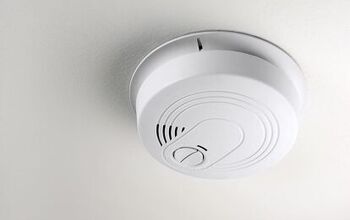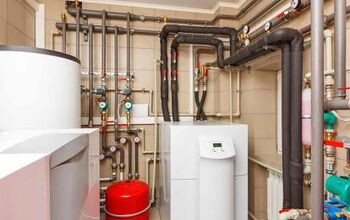Does A Whole House Generator Add Value To Your Home?

Homeowners are always looking for ways to add value to their properties. With nearly 140 million housing units in the U.S., the home industry is booming, including construction and electrical services.
One of the most important parts of any home is electricity. You need electricity for just about everything, from relaxing in front of the TV to cooking in the kitchen. Backup generators can keep you connected if a storm strikes and or an accident knocks out the power. But is a whole house generator worth additional money?
Whole house generators can add 5% of value to your home. You can increase your home value with a whole house generator even more if you live in an area that has frequent power outages. Urban homes rarely need whole house generators and having one is unlikely to increase home value in the city.
While the initial costs of a whole house generator are considerably more than other backup units, its often worth it. When done right, you can enjoy greater peace of mind and increased home values with a quality generator system.
Do You Need a Generator Installation Service?
Get free, zero-commitment quotes from pro contractors near you.

Does a Whole House Generator Add Value to Your Home?
The answer to this question ultimately comes down to the location of the property and whether or not the buyers recognize the value and convenience of a whole house generator. For potential buyers who have experienced lengthy power outages, a whole house generator can be a major selling point. In fact, in most areas, these generators are seen as more of a bonus and can set your home apart from the others.
While the short answer is yes, it often depends on the individual situation. Here are some things to consider:
- A whole house generator can often make your home easier to sell, so long as it is a high-quality generator that is professionally installed.
- Some buyers may not be aware of the added value of a whole house generator. Though you can try to educate them, it doesn’t always mean that they will pay more.
- If your home is located in a remote area and/or prone to power outages, a whole house generator will absolutely add value to the home.
- If your home is located in an urban area and/or very unlikely to ever go off the grid, a whole house generator most likely won’t add any value to your home.
For the majority of homes in suburban areas, a generator isn’t going to add any value. However, homes in rural areas or those that experience severe weather that can knock power, can see an increase in value with a generator. These circumstances make it much easier for potential buyers to recognize the convenience and, usually, be more willing to pay more.
Residential Generator Options
Before you decide to invest in a generator, it’s best to weigh up your options. These are three popular varieties of home generators:
- Whole house or home standby generators are the preferred choices for residential use, offering adequate appliance power.
- Inverter generators are a quieter option that supports power for small appliances like fans, heaters, lights and radios.
- Portable generators are common on construction sites to power tools and air compressors as well as some appliances.
Whole House Generators vs. Portable Generators
It makes sense that a generator covering your entire house would cost more than a portable generator. However, the extra investment may pay off in the long run, as a whole house generator can do much more.
On the cheaper end, portable generators are priced as low as $500, but they can cost as much as $2,000. In comparison, a whole house generator could cost anywhere from $7,000 – $15,000, depending on how big your house is.
Yes, you spend more money upfront with a whole house generator, but try using this to your advantage. If you get your property valued or choose to sell, your standby generator is treated as an amenity. A portable generator doesn’t do much for your home value as you could just take it with you.
Understanding Your Property Power Priorities
Price is important, but you also need to think about what matters most to you when a power outage occurs. Here are a few questions to ask yourself to better understand whether a whole house generator is worth the cost:
- Are you concerned with having backup power throughout your whole house, or just being able to charge your phone?
- Are power outages common in your area?
- Would a prolonged power outage affect your livelihood and lifestyle?
- Is getting a good return on investment a priority for your property?
Standby Generators’ Effect on Resale Value
Some homeowners get a greater return on their investment than others, and every property is a bit different. A 2018 report on cost and value by Remodeling Magazine reported an average 54% return on investment. The report found that a $12,860 generator boosted the resale value by $6,940.
Even if on paper the increase in resale value doesn’t offset the standby generator costs, you may save money. A quality whole home generator prevents loss and keeps your household up and running even when the power goes out.
Another benefit of a standby generator is that it’s a fantastic feature homebuyers are looking for. If you plan to sell later, a dependable generator could sell your home more quickly when it hits the market. Some people even get a discount on their homeowners insurance for having the backup generator. You would need to consult your insurance company to explore if that’s an option for you.
Impressive Capacity of Whole House Generators
The main reason why many homeowners choose to invest in whole house generators is that they have a high capacity. Unlike inverter or portable generators, standby units can power:
- Heating and cooling units and water heaters
- Appliances such as refrigerators, microwaves, stoves and dishwashers
- Home security systems
- Sump pump, well pumps and plumbing fixtures
- TVs, radios, computers and personal devices
Small generators cannot support large appliances and mechanical systems. If those things are important to you, a whole house generator makes sense.
Ensuring the Proper Generator Power
When it comes to whole house generators, you can expect the higher the capacity, the higher the price tag. It’s up to you to decide how strong and extensive you want your backup generator coverage to be. The more electricity it can generate, the bigger difference the generator could make to your home’s value.
Understanding your home’s wattage requirements gives you greater insight into what you need from a standby generator. While a refrigerator may be 600-800 watts, an electric furnace could be up to 25,000 watts. If that’s something you want access to when the power goes out, then a whole house generator works best.
The Next Steps for a Whole House Generator
If you want to explore the potential for a whole house generator, it’s time to bring in the professionals. Your power company or electrical contractor can guide you through these next steps to achieve the best value:
- Figure out your fuel type, whether it be natural gas, liquid propane or diesel. Remember that liquid propane or diesel tanks need to be large enough to efficiently operate the generator.
- Confirm the size of gas lines and meters for a straightforward and successful installation.
- Examine your top priorities for power outages. Discuss the power ratings and sizing options that would suit your property.
- Select a transfer switch setup to turn the generator on. This depends on the electrical panel amperage, as you need it to match.
- Decide whether you want to incorporate Wi-Fi options to your standby generator. Remote monitoring is a good option if you travel a lot or are interested in renting out your property.
- Finalize the installation plans and watch your property value rise over time. Plus, rest assured there will be fewer problems when the power goes out.
Do You Need a Generator Installation Service?
Get free, zero-commitment quotes from pro contractors near you.

Related Questions
What’s better, a steel or aluminum generator?
Aluminum generators tend to last the longest, especially in humid areas. As a rust and corrosion-resistant material, aluminum is also a good choice for coastal regions. It’s best to ask your electrical professional to further explore your options and find an affordable and appropriate home generator.
How do you maintain a generator?
Maintenance is important to ensure the generator system lasts for a long time. To properly maintain your whole house generator, you should change the oil and filter regularly. Refer to the manufacturer’s manual for maintenance instructions and arrange routine maintenance services by an electrical services company.
How long can a generator last for?
It depends on how well you maintain your generator. Some emergency power units can last for 20 or even 30 years. The more you spend on your whole house generator, the more use you can expect to get out of it. It’s important to make a smart investment and spend your money wisely on a generator to get the most value.
How much does it cost to install a whole house generator?
The average cost to install a whole house generator is roughly $3,700. Depending on the size of your home, the generator could cost as little as $400 or be over $15,000.

We are a team of passionate homeowners, home improvement pros, and DIY enthusiasts who enjoy sharing home improvement, housekeeping, decorating, and more with other homeowners! Whether you're looking for a step-by-step guide on fixing an appliance or the cost of installing a fence, we've here to help.
More by Upgraded Home Team



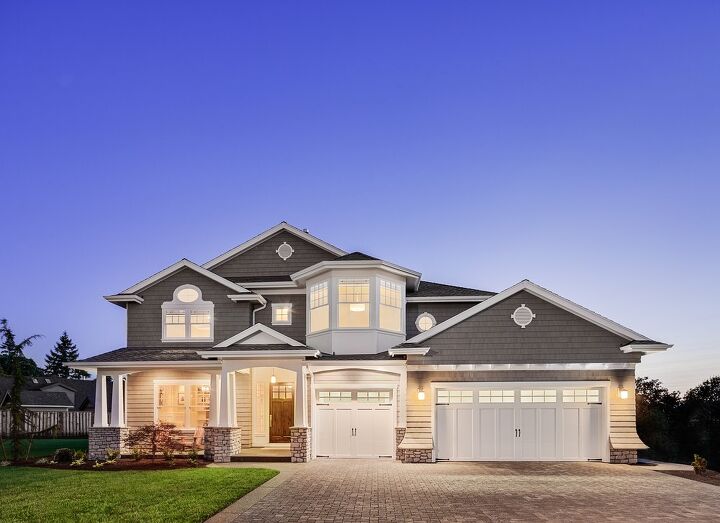






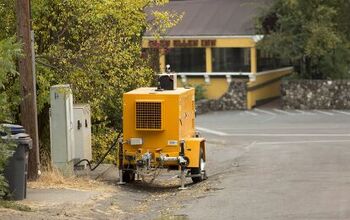
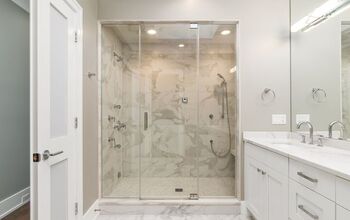
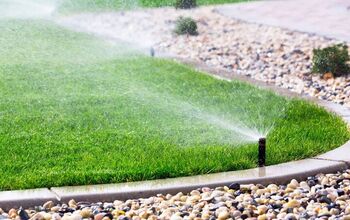


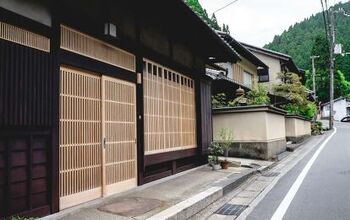

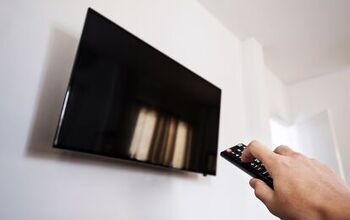
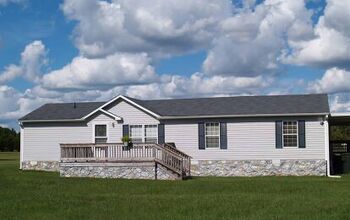
![Standard Dining Room Table Dimensions [for 4, 6, 8, 10 and 12 People]](https://cdn-fastly.upgradedhome.com/media/2023/07/31/9074335/standard-dining-room-table-dimensions-for-4-6-8-10-and-12-people.jpg?size=350x220)





